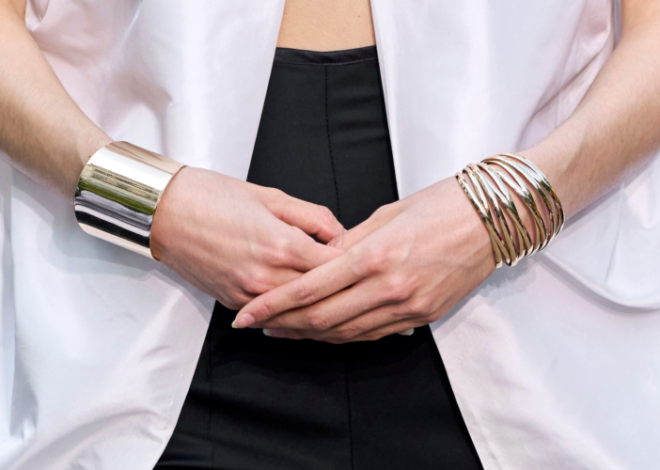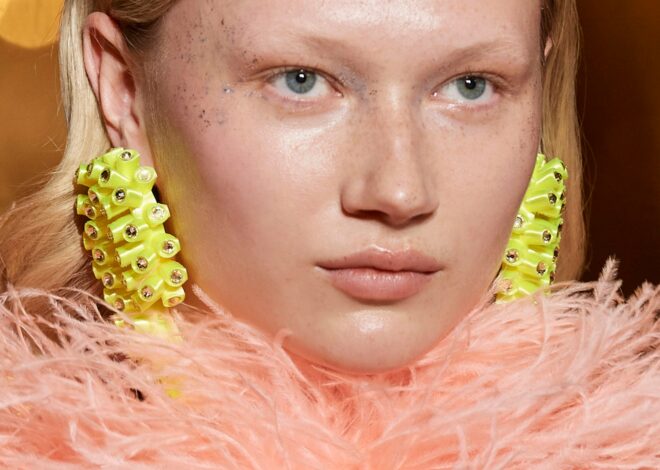Kim Kardashian Has Spoken Out Against Balenciaga’s Holiday Campaign
- Being Outside Is Good For Your Body and Mind — Here’s Why - December 14, 2023
- The Chicest Bracelets for Women (All Under $100) - December 14, 2023
- Water Is Life — Here Are 11 Simple Ways to Drink More of It - December 14, 2023
Balenciaga has mastered the art of going viral — but at what cost?
This article was originally published on November 23, 2022.
Update: On November 27, Kim Kardashian shared her thoughts on Balenciaga’s controversial campaign on Instagram Stories, writing in part, “I have been quiet for the past few days, not because I haven’t been disgusted and outraged by the recent Balenciaga campaigns, but because I wanted an opportunity to speak to their team to understand for myself how this could have happened.” The Skims founder and mother of four went on to say that she was “shaken” by the campaign’s “disturbing images” and continued: “The safety of children must be held with the highest regard and any attempts to normalize child abuse of any kind should have no place in our society — period.” Kardashian concluded by saying that while she believed the Balenciaga team understood the gravity of the situation, her future with the brand was unclear. “I am currently reevaluating my relationship with the brand, basing it off their willingness to accept accountability for something that should have never happened to begin with,” she writes.
Courting controversy is arguably what Balenciaga does best. In recent years, creative director Demna has built a reputation for stealing the world’s attention time after time with weird, unconventional and downright startling marketing. And so far, it’s proven to be a pretty successful publicity strategy. But as viral backlash from the Balenciaga holiday campaign intensifies, it appears this time, the brand has crossed the line.
The campaign, shot by renowned photographer Gabriele Galimberti, was meant to promote gifting items on par with Balenciaga’s randomness, like studded dog bowls and candle holders shaped like beer cans. The accompanying photos, however, were received as anything but amusing. In the images, children are seen holding stuffed bears dressed in bondage gear like collars with locks, leather harnesses and fishnets. If that implication of child sexualization wasn’t enough, a set of explicit props felt even more disturbing. In one photo, a handbag is perched on a pile of paper, which reportedly includes documents referencing a U.S. Supreme Court case about child sexual abuse.
The troubling visuals have proved to be one of Balenciaga’s biggest controversies in years, with calls to cancel the brand growing on social media. And instead of embracing conflict as they regularly would, the fashion house has moved to damage control. After removing the images from all platforms, Balenciaga took to Instagram Stories on November 22 to formally address the backlash. “We sincerely apologize for any offense our holiday campaign may have caused,” the statement read. “Our plush bear bags should not have been featured with children in this campaign.”
The fashion house went on to apologize for the “unsettling documents” in question. “We take this matter very seriously and are taking legal action against the parties responsible for creating the set and including unapproved items for our spring 23 campaign photoshoot,” the Balenciaga statement continued. “We strongly condemn abuse of children in any form. We stand for children safety and well-being.”
But despite pulling the campaign and apologizing, the world is not exactly ready to forgive and forget. In fact, the newly released statements have arguably sparked more outrage: some criticize the brand for deflecting responsibility, while others suggest the entire debacle is yet another outrage marketing scheme. “Do they think we’re stupid?” wrote fashion influencer Louis Pisano. “That campaign went [through multiple] people including DEMNA before it went out and here they are trying to scapegoat the ‘parties responsible.’”
As fallout grows, the prevailing response is more of a question: Could this really be an accident? After all, Balenciaga thrives off of carefully crafted chaos. The brand hosts fashion shows in unconventional environments like simulated snow storms, mud pits and the New York Stock Exchange. It has collaborated with entities like The Simpsons and Fortnite, while enlisting unexpected celebs for catwalk cameos. It regularly releases bizarre designs, from “destroyed” sneakers to trash bag totes. In recent years, Balenciaga’s meme-worthy style has become so unpredictable that theories suggest the fashion house is, in and of itself, a social experiment. Through it all, Demna has been known to weave deeper meaning and critical commentary into each of his astonishing antics. All things considered, it’s hard to believe a misstep like this is just an oversight.
TikTok fashion commentator Jasmine Darya (@jasminedarya) argues the Balenciaga holiday campaign is not an ignorant mistake, but a result of the brand’s quest for clickbait. “I feel like in the last few couple of years, they’ve really gone towards this ‘anything to get a headline’ mentality,” she said in a recent video. “When you start relying on headlines and cheap publicity to sell your clothes as a fashion brand, that’s when you’re too far gone,” she wrote in the caption. But even with this problematic promotional look, is Balenciaga actually cancellable? Is any brand?
The thing is, in the world of fashion, social media outrage is reliably short-lived. Take Dolce & Gabbana. Despite having a track record of blatant misogyny, racism and homophobia, the Italian label has remained relatively unscathed, with seemingly unconditional support by A-list celebrities like the Kar-Jenners. And as chance would have it, Balenciaga, too, has star power on its side.
After religiously repping it over the past year, Kim Kardashian has basically become synonymous with the label. Despite calls for her to condemn this campaign, at the time of publishing, the beauty and shapewear mogul has stayed notably silent on the scandal, which is a statement in and of itself. We may never know whether the campaign was an intentional scheme or a tone-deaf blunder. But does the answer really matter? Despite how murky the ethics may be, it seems shock factor never goes out of style.


